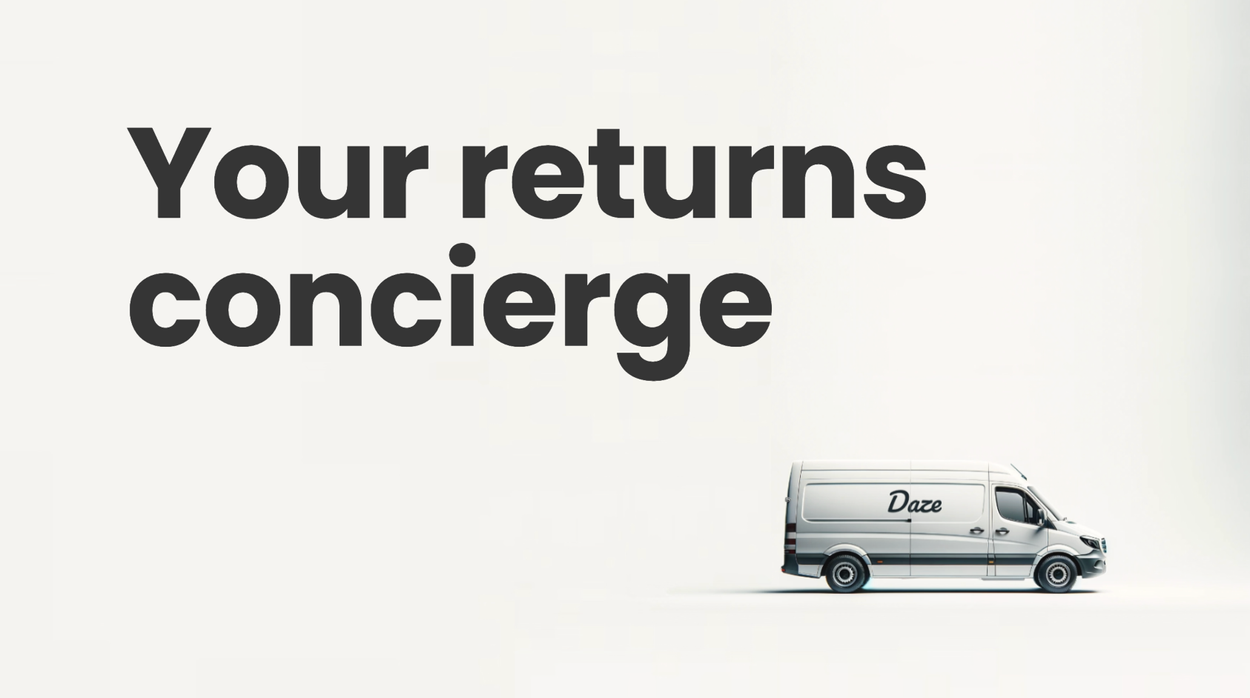Reflections on building – Joose Toiviainen, Daze
In this blog post, Startup Foundation grantee Joose Toiviainen reflects on his experience building circular economy solutions.
I received the Startup Foundation Individual Grant in Q1 2023.
It feels like an eternity since then. I don’t even recognize the first iterations of my then-product.
Back then, I had a personal problem with used and vintage clothing being hard to find. This was the case, especially for men. As I was constantly trying to find problems to solve with technology, this felt like a perfect problem.
it was personal, I knew the problem
had a moderate to high frequency with potential users
the existing market was a mess.
I applied for the foundation grant to gain focus back from my consulting gigs. Consulting was undoubtedly fun and I liked the people I worked with, but my learning curve had completely stalled. After receiving the grant, I was able to focus on building the solution full-time.
So I built an aggregator for existing marketplaces! This was hacked together with a website builder, embedded Typeform, and a MailChimp template that I had filled with results from relevant sources. These sources could be general marketplaces like eBay, or category-specific marketplaces and recommerce retailers (which have absolutely boomed since the setting of this story btw!). I had a half-automated list of them that I could run pretty quickly.
I’m really proud of how quickly I got to the validation phase with this manual solution. The product was called Loopd, and I started distributing it through friends, friends of friends, and relevant communities.
Then the challenges started. I had around 60 to 80 cumulative unique users, but none of them seemed to stick. The feedback was always indifferent and boring. Nobody hated the product, but I started to suspect it didn’t solve their problem. Or my hypothesis of the problem was all wrong. Monetization was out of the question.
Having an additional service on top of the questionable marketplaces and outlets started to feel wrong. Having inventory and thousands of unique SKUs (based on vintage, condition, brand, etc.) was out of the question because of its capital-intensive nature. This is something even huge e-commerce players are struggling with.
I’m still quite baffled about the space. Clearly, somebody is going to figure it out sooner or later, but founder-market fit matters.
I was, and still am, more focused on the logistics and operations side of the problem. If I were to continue solving discoverability in used items, I would need a co-founder. I tried for weeks and months, but initially, interested people always seemed to drift towards other problems - I don’t blame them. Meanwhile, other approaches to circular economy seem to be becoming commonplace. These include renting, repair, and resales. Especially “recommerce” aka resale-related business models have been booming lately.
The great thing about all of this was that the problem space led me to my current startup and co-founder. During building, I was heavily exposed to the logistics of circular businesses and started diving into the niche. Turns out, traditional parcel carriers are not prepared for the intense reverse logistics in circular commerce. They still view the first-mile leg as a cost sink, and as a result, customer experience is terrible. As I have always been a) super interested in moving stuff around, also known as logistics, and b) struggling with returning stuff requiring packaging, printing, and obscure dropoffs — I ultimately stopped building Loopd and moved away from aggregating second-hand listings.
I am now building Daze. We’re your returns concierge, meaning we pick up and handle returns for you. We partner with online retailers to empower their customers with the easiest returns in the world. For the retailer, emoving the hassle of returns boosts order value, advertising ROI, and customer LTV.
I posted about my personal gripe with returns & the idea for solving this on a co-founder dating website. I almost immediately received a message from my now co-founder. We decided to work together for a while without commitments. After a couple of weeks, it turned out we were a great match! Work ethic, extreme ownership, and clear responsibility areas are key here.
Now I feel I found exactly the industry and problem I want to spend the next 5 to 10 years on - hopefully, more.
Have a great day,
Joose



